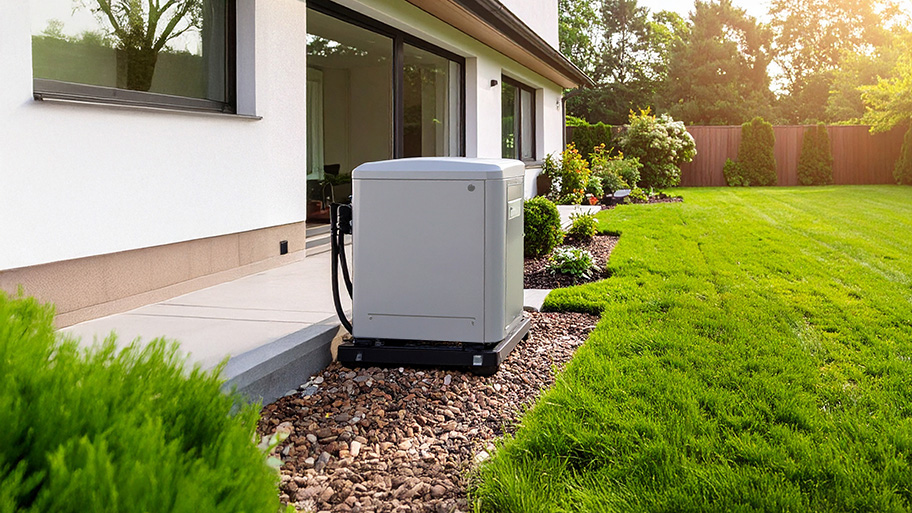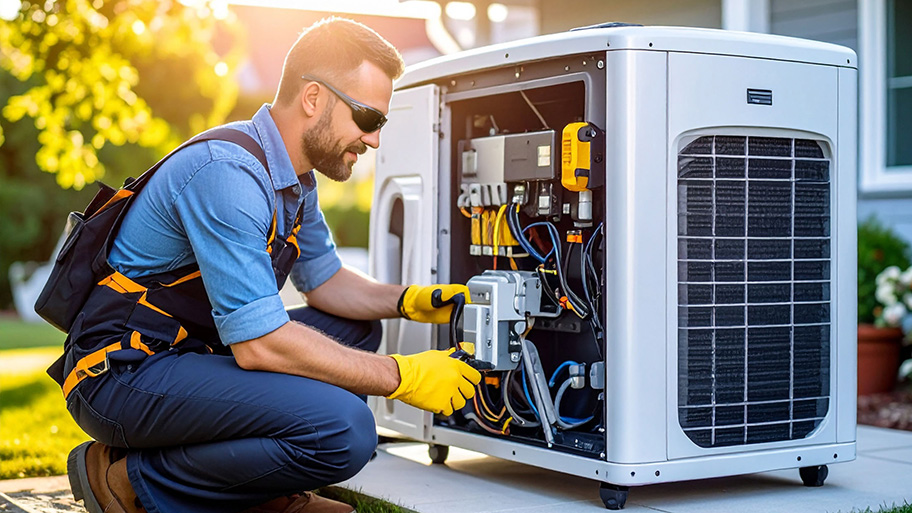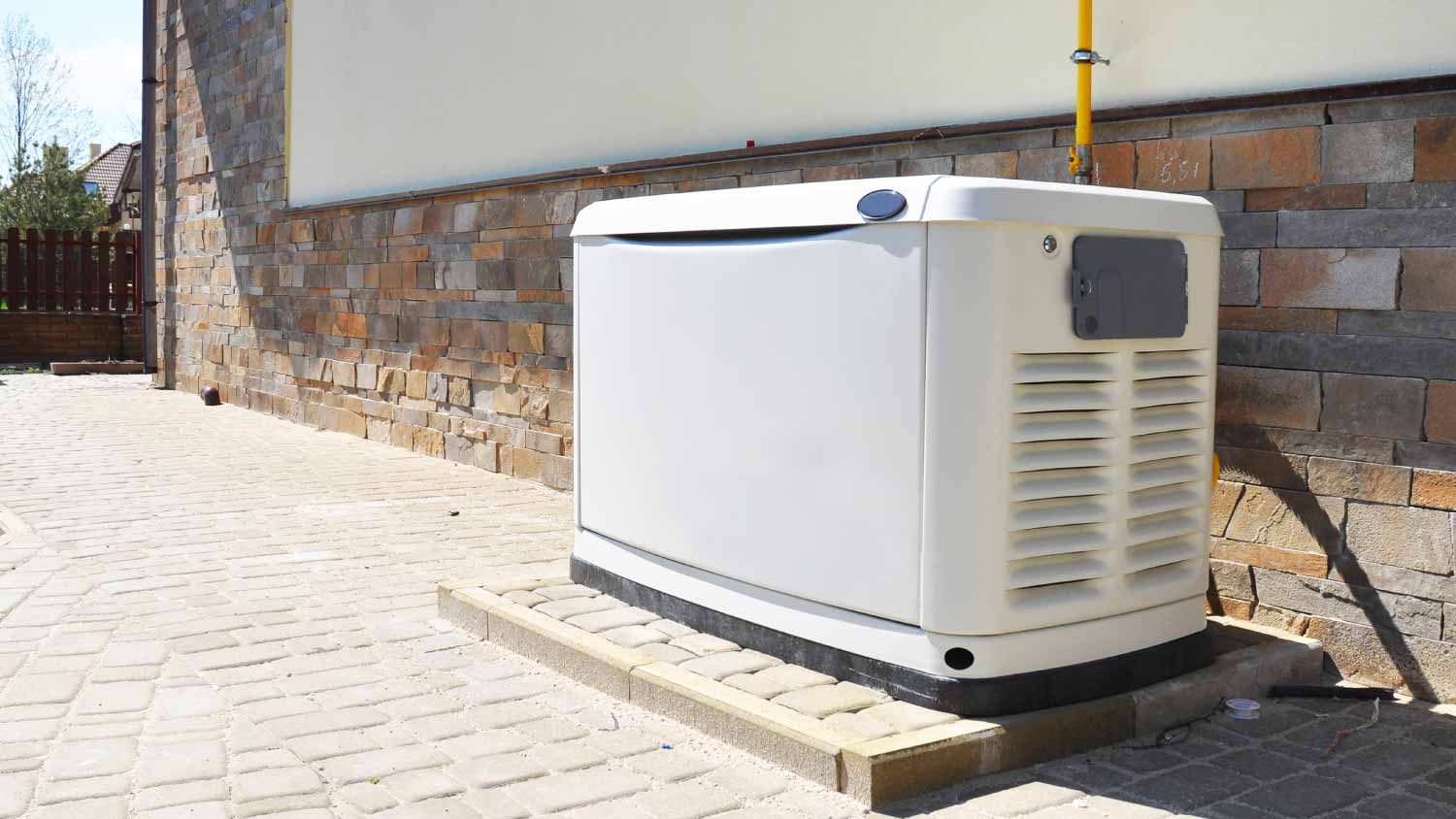
The average cost of a whole-house generator falls between $5,000 and $25,000. Keep reading to learn how much you can expect to spend.
Find out if your whole-house generator is a quick-fix or a long-haul hero


When your power goes out, a whole-house generator can keep your home running smoothly until the grid is restored. But how long your generator can run continuously without causing damage or requiring a break depends on several factors, such as fuel type and usage. Understanding these key elements of your whole-house generator can help you avoid unexpected blackouts when you need light the most.
The less satisfying answer is that it depends: Most whole-house generators can run continuously for between 500 to 3,000 hours. Whether your generator falls on the shorter or longer end of the spectrum depends on the type and size of the generator, what fuel source it uses, its age, and how well it’s maintained.


Consider the longevity variables and how they can affect the lifespan of your whole-house generator.
The frequency with which you use your whole-home generator impacts its lifespan. A generator that gets used a few times a year versus several months out of the year can significantly impact how long it can run continuously. The more wear and tear and less maintenance your generator endures, the shorter its run time. Make sure your generator is less than 30 years old and receives regular maintenance to ensure it’s ready to roll when power shuts off.
Are you using a portable generator or a backup generator? The answer can make the difference between a generator that runs anywhere from 16 to 200 hours or one that runs continuously for upward of 2,000 hours. Most portable generators have significantly less run time than whole-home generators, so start by confirming which type you have.
The type of fuel your whole-home generator uses to run is a major longevity factor. For example, a generator that uses natural gas supplied by a municipal gas line has an infinite run time, while a generator field by diesel is limited to a run time of 500 to 700 hours before it requires maintenance. Run time for generators that use propane depends on how big the fuel tank is. For example, a 500-gallon fuel tank can run a 22kW generator for about a week continuously.
Regular maintenance is crucial to ensure your generator stays in peak condition so it’s ready when you need it most. Consider that most generators will need an oil change around every 100 to 200 hours of use, while air filters need to be replaced every 200 to 300 hours of use. It’s important to conduct a regular coolant check and keep note of your fuel supply since diesel or gas is often the first to run out.
The below behavior can indicate that it’s time to turn the lights out on your current generator and replace it with a new one:
Your generator breaks down frequently and needs repairs often.
During an outage, the generator struggles to start or has a delayed start that requires intervention.
Appliances lose power or your lights flicker while the generator is running.
The fuel source used is burned up faster than usual.
You hear excessive noise or unusual rattling while it’s in use.
It exceeds its lifespan (often 10 to 20 years) and replacement parts are becoming hard to find.

It doesn’t matter if you’re a new homeowner with no experience with generators or a seasoned vet with a few models under your belt—performing the following maintenance tasks can extend the lifespan of your whole house generator.
Change the oil every 100 to 200 hours once a year.
Replace air and fuel filters annually.
Inspect and replace spark plugs as needed.
Replace the battery every 3 to 4 years.
Run your generator for 15 to 30 minutes every month.
Keep the area around the generator free of dirt and debris.
Regularly clean cooling vents.
Hire a local general contractor to inspect the generator annually.
Most residential whole house generators come with a 2 to 5 year warranty, though extended warranties are also available through the manufacturer or private companies. These warranties cover parts, labor, and critical components, such as the generator’s engine or alternator. Whether the cost of an extended warranty makes sense to you depends on how often you use it, its age, and your overall budget.
From average costs to expert advice, get all the answers you need to get your job done.

The average cost of a whole-house generator falls between $5,000 and $25,000. Keep reading to learn how much you can expect to spend.

Keeping on top of generator maintenance and repairs gives you extra peace of mind as a homeowner. Find out how much regular generator maintenance costs.

The cost to install a generator transfer switch depends on several factors. Our guide will help you understand all of the costs.

Can a generator get wet? Protective covers are necessary for using a portable generator in the rain, and they shouldn’t be used in extreme weather.

Whole house generators are a power alternative that can deal with frequent blackouts and other problems. Here’s how they function.

Generators are a home essential when a power outage strikes. Compare home standby generators vs backup battery systems to find the best one for you.